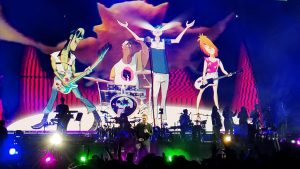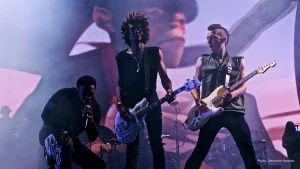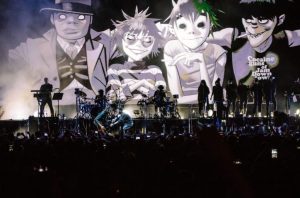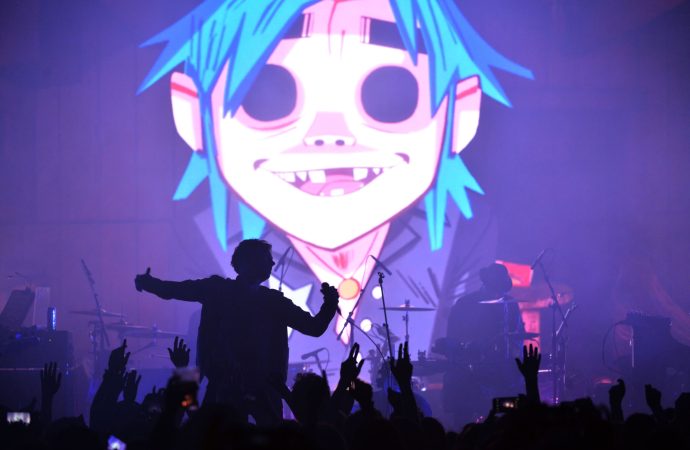Introduction Live concerts have long been a cornerstone of the music industry, providing fans with unforgettable experiences and artists with a platform to showcase their talents. However, the landscape of live music is evolving rapidly, driven by technological advancements and changing consumer preferences. The future of live concerts is increasingly leaning towards virtual and hybrid
Introduction
Live concerts have long been a cornerstone of the music industry, providing fans with unforgettable experiences and artists with a platform to showcase their talents. However, the landscape of live music is evolving rapidly, driven by technological advancements and changing consumer preferences. The future of live concerts is increasingly leaning towards virtual and hybrid events, offering new opportunities and challenges for artists, fans, and the industry as a whole.
The Rise of Virtual Concerts

Image by: Google.com
- Technological Advancements
The advent of high-speed internet, virtual reality (VR), and augmented reality (AR) technologies has paved the way for virtual concerts. These events can be streamed live or pre-recorded, offering fans an immersive experience from the comfort of their homes. Platforms like YouTube, Twitch, and specialized VR environments have made it easier for artists to reach global audiences without the logistical challenges of traditional tours.
- Benefits for Artists and Fans
Virtual concerts offer several advantages. For artists, they provide a cost-effective way to perform without the expenses associated with travel, venue rentals, and logistics. For fans, virtual concerts eliminate geographical barriers, making it possible to attend events that would otherwise be inaccessible. Additionally, virtual concerts often feature interactive elements, such as live chats and virtual meet-and-greets, enhancing fan engagement.
- Case Studies
Several high-profile artists have successfully embraced virtual concerts. Travis Scott’s “Astronomical” event in the video game Fortnite attracted over 12 million concurrent viewers, setting a new standard for virtual performances. Similarly, BTS’s “Bang Bang Con: The Live” garnered nearly 756,000 viewers from over 100 countries, demonstrating the global appeal of virtual concerts.
The Emergence of Hybrid Events

Image by: Google.com
- Combining the Best of Both Worlds
Hybrid events, which combine in-person and virtual elements, are gaining traction as a versatile solution for live concerts. These events allow a limited number of fans to attend in person while streaming the performance to a broader online audience. This model offers the excitement of a live concert experience while maintaining the accessibility of virtual events.
- Technological Integration
Hybrid events leverage advanced technologies to create a seamless experience for both in-person and virtual attendees. High-definition cameras, 360-degree video, and spatial audio enhance the virtual experience, making it as close to the real thing as possible. Additionally, interactive features such as live polls, Q&A sessions, and virtual merchandise stores provide added value for virtual attendees.
- Industry Adoption
The COVID-19 pandemic accelerated the adoption of hybrid events. Major music festivals like Coachella and Tomorrowland have explored hybrid models, offering virtual tickets alongside traditional ones. This approach not only expands their audience reach but also provides a safety net in case of unforeseen circumstances, such as travel restrictions or health concerns.
Challenges and Considerations

Image by: Google.com
- Technical and Logistical Hurdles
While virtual and hybrid concerts offer numerous benefits, they also come with challenges. Ensuring a stable and high-quality stream is crucial for a positive viewer experience. Technical issues, such as latency and buffering, can detract from the performance. Additionally, artists and organizers must invest in the necessary equipment and expertise to produce high-quality virtual content.
- Monetization Strategies
Monetizing virtual and hybrid concerts is another critical consideration. While traditional concerts generate revenue through ticket sales, merchandise, and concessions, virtual events require different strategies. Pay-per-view models, subscription services, and virtual merchandise sales are some of the ways artists can generate income. However, finding the right balance between accessibility and profitability remains a challenge.
- Audience Engagement
Maintaining audience engagement in a virtual environment can be difficult. Unlike in-person concerts, where the energy of the crowd contributes to the overall experience, virtual concerts must rely on interactive features and high-quality production to keep viewers engaged. Artists and organizers must continuously innovate to create compelling and immersive virtual experiences.
The Road Ahead

Image by: Google.com
- Future Trends
The future of live concerts will likely see further integration of virtual and hybrid models. As technology continues to advance, we can expect even more immersive and interactive virtual experiences. Holographic performances, AI-driven personalization, and enhanced VR environments are just a few possibilities on the horizon.
- Industry Impact
The shift towards virtual and hybrid concerts will have a profound impact on the music industry. Artists will need to adapt their performance styles and marketing strategies to succeed in this new landscape. Record labels and concert promoters will also need to rethink their business models to capitalize on the opportunities presented by virtual and hybrid events.
Conclusion
The future of live concerts is undeniably intertwined with virtual and hybrid events. While traditional concerts will always hold a special place in the hearts of fans, the convenience, accessibility, and innovation offered by virtual and hybrid models are reshaping the industry. As technology continues to evolve, the possibilities for live music experiences are limitless, promising an exciting future for artists and fans alike.
















